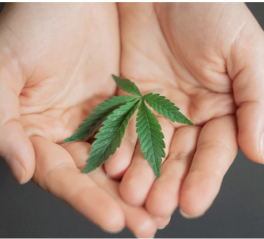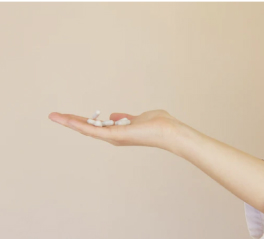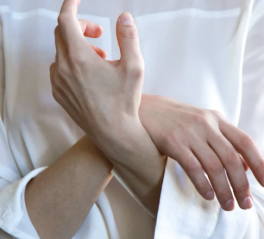Causes / Predispositions
While no exact cause(s) are known, factors that can contribute to the onset of migraines include genetic predisposition, gender, and triggers such as:
- Stress
- Loud Noises
- Bright Lights
- Certain Foods
- Lack of Sleep/Poor Sleep Quality
- Alcohol Consumption
Symptoms
Migraine symptoms can vary from patient to patient. Common symptoms include:
- Prolonged Headaches of Moderate to High Severity
- One-Sided Headache
- Sensitivity to Light
- Sensitivity to Noise
- Sensitivity to Smell
- Aggravated by Movement
- Throbbing
- Nausea and Vomiting
- Visible Aura
- Confusion
- Difficulty Concentrating
Traditional Treatments
Lifestyle
- Trigger Avoidance (When Possible)
- Remaining Hydrated
- Adequate Sleep
- Stress Management
Medications / Treatments
- Analgesics (Aspirin, Paracetamol, Ibuprofen, Codeine)
- Triptans
- Anti-Nausea
- Meditation
- Acupuncture
- Hypnotherapy
- Monoclonal Antibody Medications
Treatment with Cannabis Medicine
Medicinal cannabis has been shown to be useful in treating patients suffering from recurrent migraines. Research indicates that formulations high in CBD or equal potencies of THC and CBD may be most effective in maximizing the migraine relief potentials of cannabis medicine. Additional research is needed to fully understand the therapeutic potentials and possible side effects of cannabis as a treatment for migraines.
Recommended Intake Method(s)
- Edible Oils – Useful as a preventative treatment.
- Inhalation via Vaporizer – Useful in achieving immediate breakthrough relief due to fast onset.
Recommended Product Formulations
- Products containing CBD only.
- Products containing ratios of 1:3, 1:2 or 1:1 THC to CBD.
Notable Terpenes
- Myrcene – Analgesic, Muscle Relaxant, Anti-Inflammatory
- Linalool – Analgesic, Anti-Anxiety
- Limonene – Anti-Anxiety, Anti-Stress, Anti-Depressant





